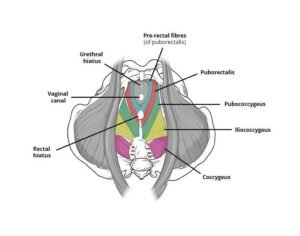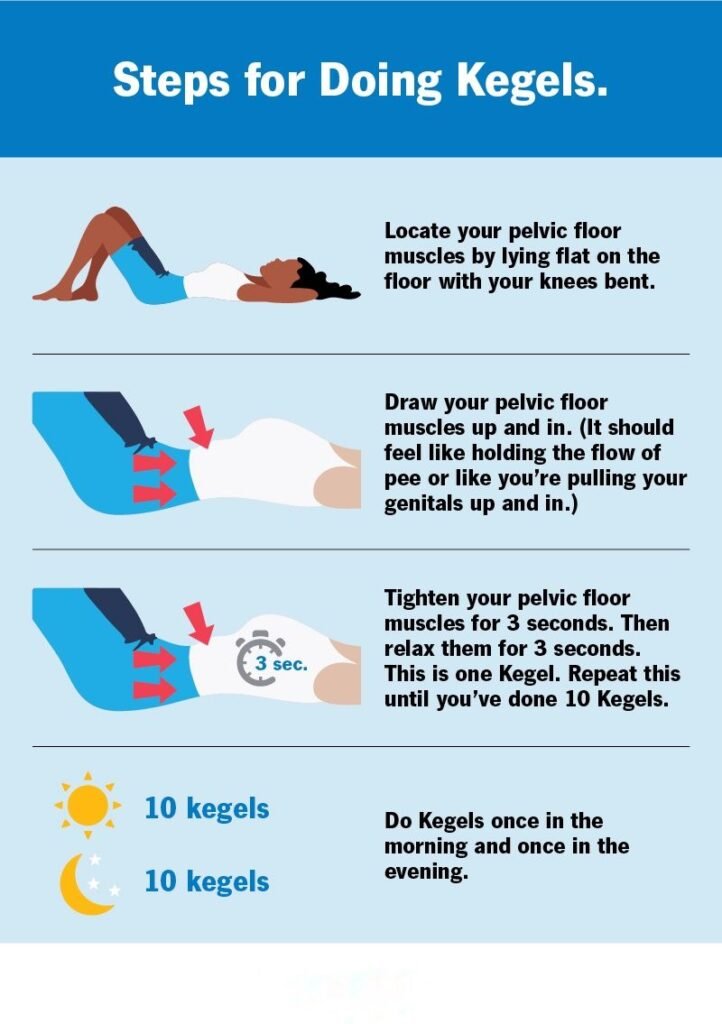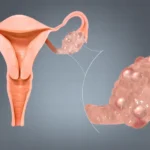Sexual health is a vital aspect of overall well-being, yet many individuals face challenges that hinder their intimate experiences. Conditions such as pelvic pain, incontinence, or sexual dysfunction can significantly impact sexual satisfaction and confidence. One increasingly recognized solution to these issues is pelvic floor physiotherapy. This therapeutic approach not only improves physical symptoms but also enhances sexual function, leading to better overall sexual health.
Pelvic Floor and Its Role in Sexual Health
The pelvic floor is a group of muscles that support the organs in the pelvis, including the bladder, bowel, and reproductive organs. These muscles play a critical role in several bodily functions, including urinary and fecal control, as well as sexual function. A well-functioning pelvic floor can contribute to better control, more intense orgasms, and greater sexual satisfaction.

Here are the key pelvic floor muscles:
1. Pubococcygeus
2. Puborectalis
3. Iliococcygeus
4. Coccygeus
5. Bulbospongiosus
6. Ischiocavernosus
These muscles work together to support pelvic organs, maintain continence, and contribute to sexual and reproductive health.
However, when these muscles are weak or overactive, it can lead to issues such as pelvic pain or dyspareunia (painful intercourse), as well as incontinence. This is where pelvic floor therapy comes into play. Through a combination of exercises, manual therapy, and biofeedback, pelvic floor physiotherapy aims to strengthen or relax these muscles, restoring balance and improving function.
How Pelvic Floor Dysfunction Affects Sexual Health
Pelvic floor dysfunction can manifest in different ways, with the most common being pelvic floor hypertonicity (overactive muscles) or hypotonicity (weakened muscles). Both of these conditions can affect sexual health:
- Hypertonicity (Overactive Muscles): Overactive pelvic muscles can result in pain during intercourse, known as dyspareunia, or conditions like vaginismus (involuntary muscle spasms that close the vagina). This can cause significant discomfort and reduce sexual pleasure. In men, overactive pelvic muscles can contribute to premature ejaculation or erectile dysfunction.
- Hypotonicity (Weak Muscles): On the other hand, weakened pelvic floor muscles may cause urinary leakage during sex or a lack of sensation during intercourse, which can reduce sexual satisfaction for both partners. Conditions like pelvic organ prolapse, where the organs drop from their usual position, can also result from weak pelvic muscles, further affecting sexual function.
How Pelvic Floor Therapy Enhances Sexual Function
Pelvic floor therapy is a non-invasive treatment option aimed at restoring normal pelvic floor function. Here are some of the ways pelvic floor therapy can improve sexual health:
1. Strengthening Pelvic Muscles for Improved Orgasm
A strong pelvic floor can enhance sexual sensations by improving blood flow to the genital area and increasing the strength of muscular contractions during orgasm. Pelvic floor therapy, particularly Kegel exercises, targets these muscles, helping individuals experience more intense and pleasurable orgasms.

2. Reducing Pain During Intercourse
For individuals suffering from conditions like dyspareunia or vaginismus, pelvic floor therapy uses techniques such as trigger point release and manual therapy to relax overactive muscles. This helps reduce pain during penetration, allowing for more comfortable and enjoyable sexual experiences.
3. Improving Control and Sensation
Incontinence or lack of sensation during sex can be distressing for many individuals. Strengthening the pelvic floor through tailored exercises improves muscle control, reduces involuntary leakage, and enhances sensitivity during intercourse. This allows individuals to feel more confident and present in their sexual encounters.
4. Supporting Postpartum Sexual Health
After childbirth, many women experience pelvic floor weakness, which can lead to incontinence or pain during sex. Pelvic floor therapy is especially beneficial postpartum, as it helps restore muscle strength and improve tissue healing, allowing new mothers to return to a fulfilling sexual life.
When Should You Consider Pelvic Floor Therapy?
- If you’re experiencing any of the following symptoms, pelvic floor therapy may be beneficial:
- Pain during sex or difficulty with penetration
- Reduced sensation or difficulty achieving orgasm
- Urinary or fecal incontinence during sexual activity
- Postpartum pelvic pain or discomfort
- Feeling of heaviness or pressure in the pelvis
Consulting a pelvic health physiotherapist is crucial to assess your specific condition and develop a tailored treatment plan.
Final Thoughts: Taking Control of Your Sexual Health
Pelvic floor therapy offers a holistic approach to addressing sexual health issues by focusing on the muscles that play a vital role in sexual function. Whether you’re dealing with pain, incontinence, or simply looking to enhance your sexual experience, pelvic floor therapy can make a significant difference. Strengthening or relaxing the pelvic floor muscles under the guidance of a trained physiotherapist can lead to a more fulfilling and pleasurable sex life.
Taking control of your sexual health starts with acknowledging the importance of your pelvic floor and seeking professional help to address any dysfunctions. Don’t let pelvic floor issues stand in the way of enjoying a healthy and satisfying sex life.





